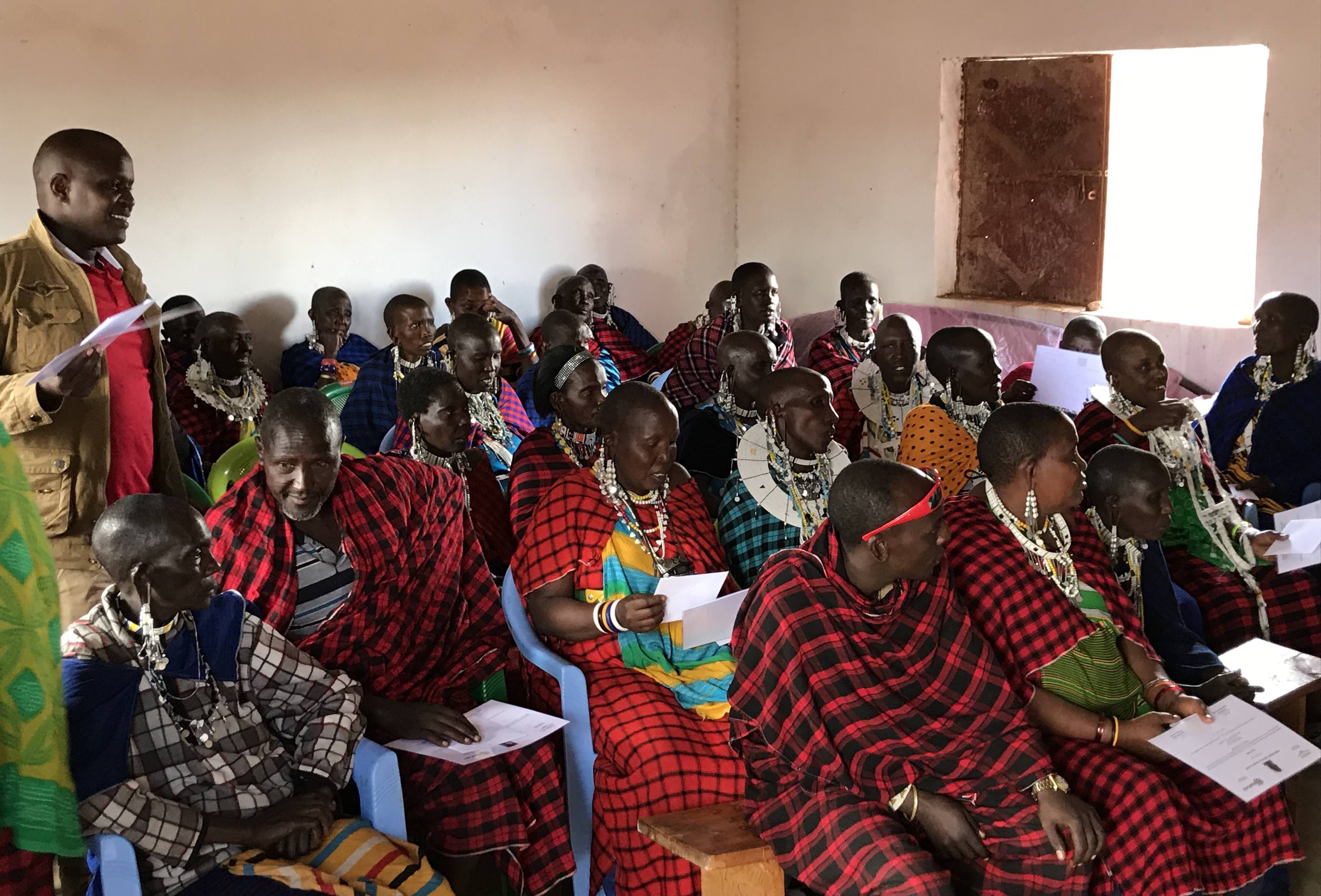Many rural communities in Tanzania share similar challenges from mining companies and investors. I have seen first-hand how men and women gender and land champions can help.
Over the past eight months, I have been travelling around small communities in the northern part of Tanzania with different gender and land champions supported by the global WOLTS project, on which my organisation, HakiMadini, partners with Mokoro of the UK and PCC of Mongolia.
They were sharing what they had learned through the WOLTS gender and land champions training programme with other communities, about land law and the rights of women, and they were having an amazing impact on the people we were visiting.
In each village the challenges were similar: investors were coming with government papers and permissions giving them rights to explore for rubies or other minerals, and the villagers had no idea what rights they had to protect their community’s land and livelihoods.
One champion, Peter, was urging them not to be afraid. A warm-hearted Maasai man with many years’ experience as a traditional leader and former village chair, he had gained even more confidence after being selected by his community to take part in the WOLTS training on gender and land issues. He spoke easily about a community’s rights when miners arrived on their land, and the correct procedures to follow to ensure everyone benefited and that vulnerable people were not taken advantage of. He also had some good tips on what to do if the miners suddenly started farming the land – which has happened in more than one location we visited.
Another champion, Sindooi, impressed both women and men with her confident approach to the land rights of women. Widowed at a young age, Sindooi had used her new knowledge gained through WOLTS training to secure her inheritance. She was also selected by her community and has become a leading voice for women’s land rights and against gender-based violence (GBV) of all kinds.
Peter strongly supported Sindooi, speaking out against GBV and persuasively making the case for the rights of widows and of women who had no children. Pointing to the large tree shading us all from the hot sun in one village, he observed that fruitless trees still brought many benefits to the people of the community.
As a Maasai woman myself, I could see that Peter and Sindooi, and our other champions Milya and Rosa, were not just explaining technical things like land law and gender concepts but could translate them into everyday language that the people could really understand. And they were not afraid to talk about subjects that I could never dare to raise.
For example, Sindooi spoke openly about men abandoning their families, and having relationships outside their marriage. Wives, she said, were having to live like widows even though their husbands were still alive. As she spoke, many men were looking down, absorbing her painful message. We left feeling that there had been a real connection with the community.
I have been working on land and mining rights in Tanzania for many years, but this project has opened my eyes to the potential for local champions to make real change. By giving communities the space to learn about their rights, and then select their own advocates, they seem to become so much more empowered than when outsiders come in for short trips to give training or advice.
What started as a project about women’s land rights has also become so much more. Sensitive issues that would never have been discussed when I was a girl are being aired in front of men and women of all ages. New champions are being identified and community hunger for knowledge will drive them on. Leaving the villages that we visited together with the champions, I feel confident that the changes that communities want will continue, long after we have gone.
Joyce Ndakaru works as Gender Officer with the Tanzanian NGO, HakiMadini. She is a core team member for the global WOLTS project, which is carried out in Tanzania by HakiMadini with Mokoro Ltd, a UK-based not-for-profit organisation. For more information on WOLTS and access to research reports and publications, please visit http://mokoro.co.uk/project/womens-land-tenure-security-project-wolts/
This blog has been simultaneously published as a Mokoro newsletter article with permission of the author.


